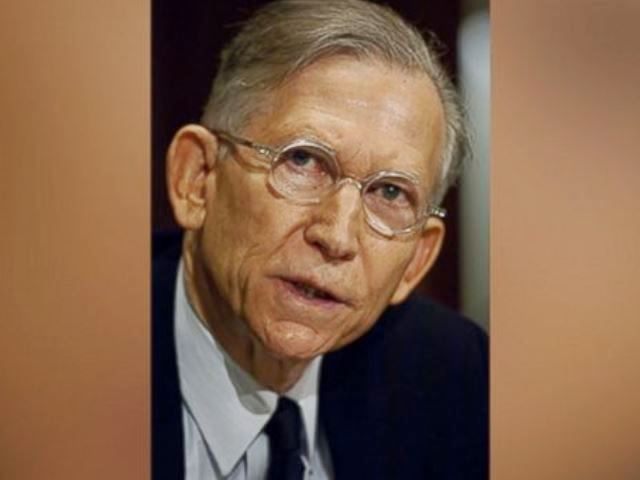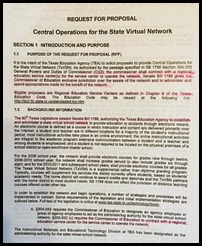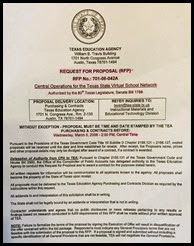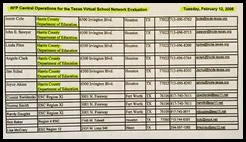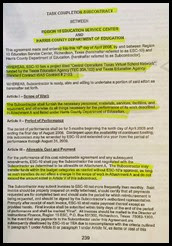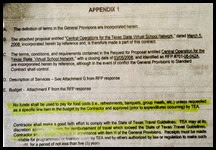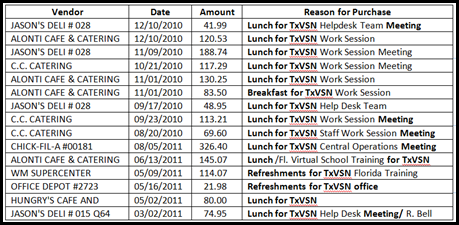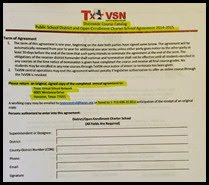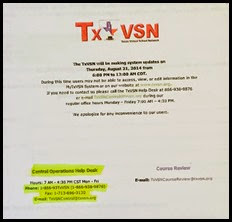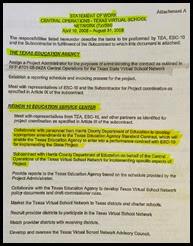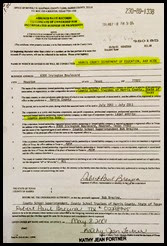3 Jan 2016
Charles Butt, the Texas billionaire magnate behind the H-E-B supermarket chain which forbid the open carry of firearms law that went into effect January 1, 2016, opposes school choice, funds anti-school choice lobbyists, and is even credited for his role in killing a 2011 state bill banning “sanctuary cities.”
Butt is the 2015 fourth richest Texan and Forbes’ 44th wealthiest person in America with a net worth of $10.7 billion known for funneling hard earned assets into educational lobby groups that fight school choice, although the 77-year-old grocer received a private Ivy League college education that included an undergraduate degree from the University of Pennsylvania’s prestigious Wharton School and a master’s in business administration from Harvard. Texas Watchdog stated Butt believes that private competition “undermines government schools.”
His vested interest in Texas public education includes H-E-B handing out $800,000 a year to public education pursuits through the Excellence in Education Awards. In 2006, he founded Raise Your Hand Texas, which lists Butt as an advisor. The Texas Tribune describes Raise Your Hand Texas as a “seasoned lobbying force on education issues at the Capitol.”
However, Raise Your Hand Texas is a corporate sponsor of the Texas Tribune and Butt contributed $500,000 to the Tribune in 2014, with his all-time contribution to them at $1,150,000. Last year, the Bill and Melinda Gates Foundation, primary funder of the Common Core State Standards, donated $249,763 to the Tribune.
Texas Watchdog charged Raise Your Hand Texas “pushes for increased public school funding while opposing every substantive education reform at the state legislature,” including supporting and funding candidates who oppose reform efforts to the state’s education system, and measures that expand parental rights.” The dubbed Butt a key player blocking school choice instead “propping up a faltering public monopoly.”
David Anthony, who heads up Raise Your Hand Texas, was one of 35 Texas public school superintendents instrumental in formulating a new vision for “future ready” classrooms under the Texas Association of School Administrators (TASA), another powerful education lobby.
In 2015, Breitbart Texas reported on the jarring conflict-of-interest that arose at the onset of the state’s last legislative session because House Education Committee Chairman Jimmie Don Aycock’s daughter, Michelle Smith, works for Austin-based lobbyist powerhouse HillCo Partners, which Texas Monthly placed “at the top of the lobby pyramid” since 1998. Smith’s two key clients were Raise Your Hand Texas and Fast Growth School Coalition (FGSC), which promotes rapid growth and spending on building new public schools statewide. Public outcry over the father-daughter connection put Aycock’s chairmanship at risk. Breitbart Texas reported that Smith withdrew her lobbyist registration status at the onset of the 84th Legislature to thwart that outcome.
Butt also funds the Texas Parent PAC, the largest recipient of his 2014 contributions at $1,498,000 and recognized as a top “power PAC” in the state. Texas House Speaker Joe Straus (R-San Antonio), who appoints the House Education Committee, received $168,000 from Butt that year. Butt contributed $161,458 directly to the committee members, according to the Austin American-Statesman. Texas Watchdog highlighted that the largest contribution chunk, $76,920 went to Straus’ committee chair pick Aycock (R-Killeen), also the lead author on the state’s 2013 college and career ready standards, House Bill 5.
Texas Parent PAC contributed another $81,931 to House Education Committee members, according to Texas Watchdog. The Parent PAC has proudly endorsed Aycock since his 2006 election, although he announced last summer he would not run again. In 2013, he voted against vouchers. Last year, Senate Bill 4, an education tax credit scholarship bill designed to help low-income and at risk K-12 students, was sidelined in the House Ways and Means Committee after passing in the Senate. The House never gave it a hearing.
Yet, in the 11th hour of the legislative session, the House flung House Bill 1891 out for a vote. This big government community schools initiative backed by the Texas American Federation of Teachers was the union’s solution to combat public charters, Breitbart Texas reported. Its inspiration was the American Federation of Teachers Promise Schools, a co-initiative with the Albert Shanker Institute, a proponent of Common Core state standards.
Like Raise Your Hand Texas, Texas Parent PAC opposes school choice, which means different things to different advocates on both sides of the debate. Breitbart Texas reported the premise behind “school choice” as educational options decided upon by families and not educrats whether that choice is public, charter, private, parochial, or home school. School choice opponents often depict advocates as trying to dismantle public education and privatize schooling, attack teachers, and drain taxpayer funds from public schools.
“Not so,” Americans for Prosperity State Director Michael Hasson told Breitbart Texas last year. He said the point of school choice was to “maximize” educational opportunities. “Education is the gateway to the American Dream. It’s ridiculous to assume we can eradicate the system. We want to strengthen it,” he said.
In 2013, Raise Your Hand Texas supported virtual (online) education and adding more charter schools, although they pushed for legislation that limited the reach of the proposals backed by pro-school choice advocates, the Texas Tribune reported, saying Butt created Raise Your Hand Texas to “combat private school vouchers.” Groups like Texas Freedom Network oppose school choice because they do not want taxpayer dollars to move out of the system with the child. Arizona, Florida, and Nevada embraced education savings style “voucher” accounts (ESA) as a means to flee failing schools and empower parents in making educational decisions for their children.
In December, the Texas Education Agency released its Public Education Grant (PEG) list for its 5.2 million publicly educated K-12 students and it identified the degree to which the system failed — 1,532 campuses landed on the list for poor test scores or unacceptable ratings, an increase from the previous year’s 1,199 failing schools. Texas has approximately 8,600 campuses totalling 1,200 school districts and charters.
Texas Public Policy Foundation’s Kent Grusendorf described a core conundrum of the public education “monopoly.” He wrote: “Thousands of great people work in the field of public education. Unfortunately, union leaders, bureaucrats and politicians all think they can tell teachers what is best. We must set educators free. We must set our children free.” He underscored that historically “monopolies are inherently inefficient in the allocation of resources,” adding that Texans spend over a quarter of a million dollars per year for a classroom of 25 students where the average teacher earns $50,000. “In order to advance professionally, great teachers must leave the classroom, where they have great value to the institution, and move into administration, where in many cases, they add less value,” he noted.
In 2011, Butt, along with Houston homebuilder Bob Perry, no relation to former Gov. Rick Perry, worked to kill important legislation in the fight against illegal immigration. H-E-B operates 300-plus markets in Texas and also 52 in Mexico. Through HillCo Partners, they applied pressure to the state’s House panel to block Perry’s anti-sanctuary cities measure. The supermarket mogul gave nearly $2.2 million to squash the bill, the Dallas Morning News reported, footnoting that Texans for Public Justice ranked Butt third among givers to legislative candidates in 2008.
That blocked legislation would have allowed law enforcement officers to inquire about the immigration status of people they detained, the Houston Chronicle reported. Since the Texas legislature failed to pass any anti-sanctuary cities measures, Gov. Greg Abbott made this a 2015 priority, coming up with his own plan to deal with law enforcement officials who won’t enforce the law, Breitbart Texas’ Bob Price reported. In October, Abbott called to end sanctuary city policies in Texas, Price also reported. That came in response to a Dallas County Sheriff who intended to lighten up on immigration holds for jailed illegals and legal aliens, no longer detaining them for Immigration and Customs Enforcement (ICE). Abbott said these types of sanctuary city policies will “no longer be tolerated in Texas.” A week later, he announced a new plan to strip state grant funding from county sheriffs with a Sanctuary City policy of not honoring ICE detainers, Breitbart Texas reported.
The Texas H-E-B stores will continue to abide by state CHL laws and allow concealed carry of handguns in stores..
Follow Merrill Hope on Twitter @OutOfTheBoxMom.


